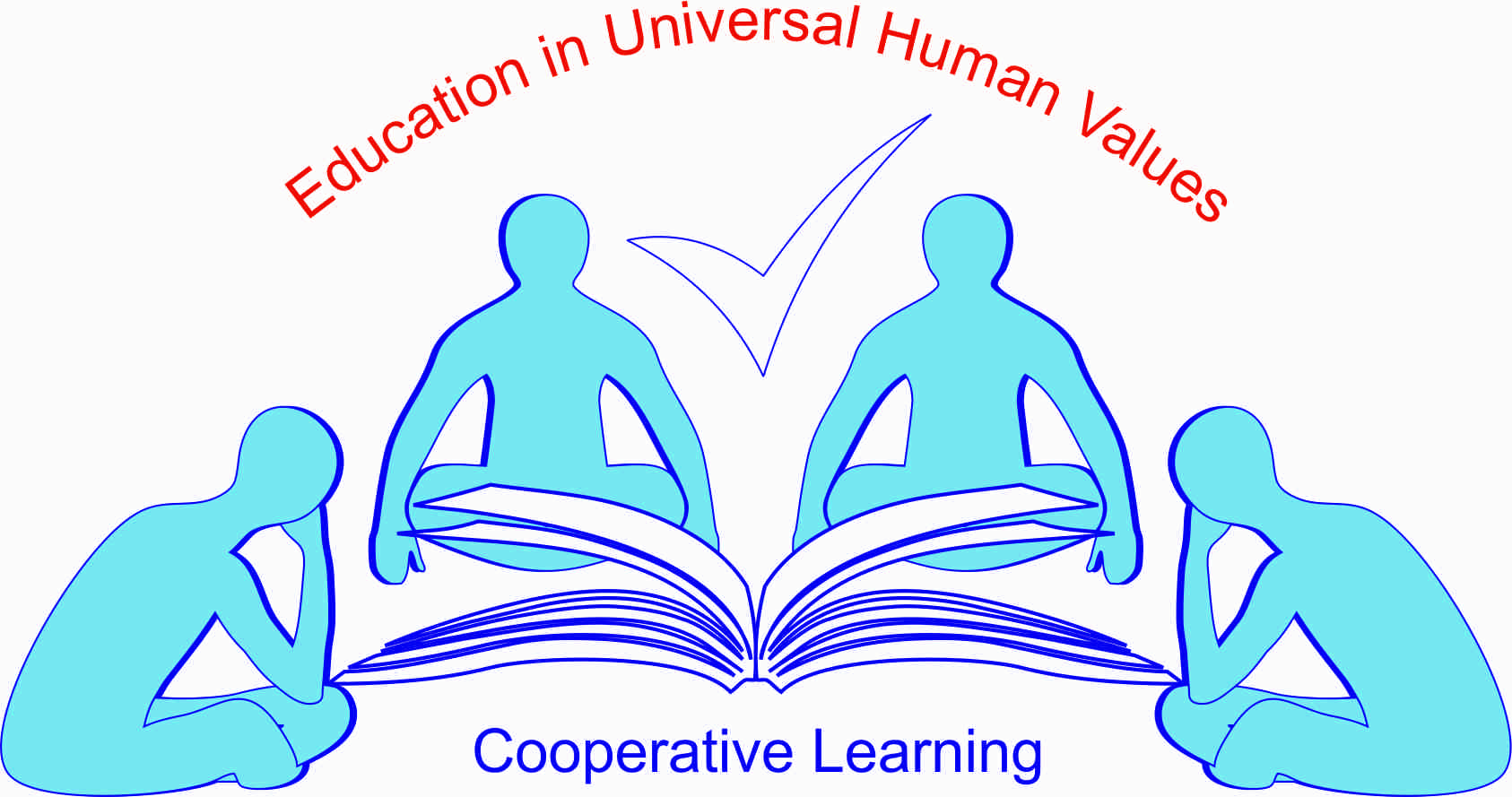Cooperative Learning: Joyful Learning
Cooperative learning is an enhanced way for learners to learn and teachers to teach. It is a strategy in which small groups, each with students of different levels of ability, use a variety of learning activities to improve their understanding of a subject. Each member of the group is responsible not only for learning what is taught but also for helping the other group members to learn, thus creating an environment of mutual achievement. Students work through an activity or assignment until all group members successfully understand and complete it.
Cooperative learning has been successfully used by teachers at all levels, from kindergarten to university, and in all subjects in many countries. Educators have a wide choice of cooperative learning procedures, strategies or methods to draw upon. In the Education in Universal Human Values programme, the teacher acts as a mentor for the class. A mentor is not a traditional teacher but a mature, trusted person who will guide and advise the participants. His or her purpose is to facilitate generating knowledge, cultivating attitudes and developing skills through cooperative learning. Thus learning is enhanced, thinking is sharpened, values are practised, communication skills are improved and self-confidence is built up. It produces a joyful learning experience.
Teachers’ Orientation Workshops on Education in Universal Human Values include introduction to Cooperative Learning and Cooperative Games and training participants to use about five Cooperative Learning structures in their classroom settings and practice Cooperative Games.
Click here to read more about Cooperative Learning.
Educational and Cooperative Games
Cooperative games are integral part of cooperative learning and Education in Universal Human Values programme. No competition takes place and the games are fun too. There are no losers and no one is ever “out”. Everyone participates; everyone wins. As these games are played they are processed and experiences are shared. Often a game brightens the darker sides of one’s sub conscience and corrects one’s reflex action that is not always value-based. Usually there is at least one game associated with each unit of every module. Some of the games played in the first module are as follows:
- Adjective game to break the ice and bring about friendship
- Vision game to strengthen one’s power of imagination
- Sharing of paper to appreciate the effects of practicing “sharing” among family members
- Guard the treasure to experience how difficult life would be without trustworthiness.
- Association game for team building and promoting unity
- Cooperative juggling for team building





